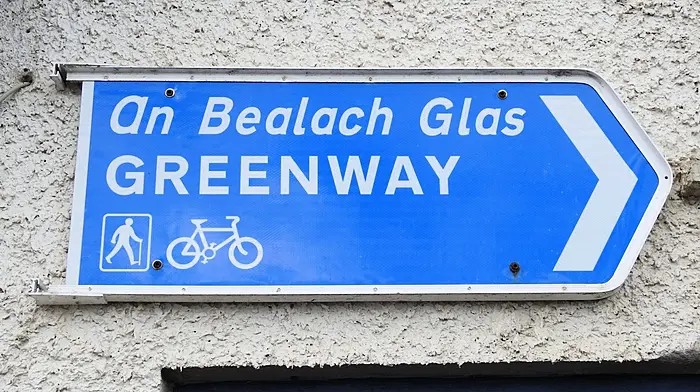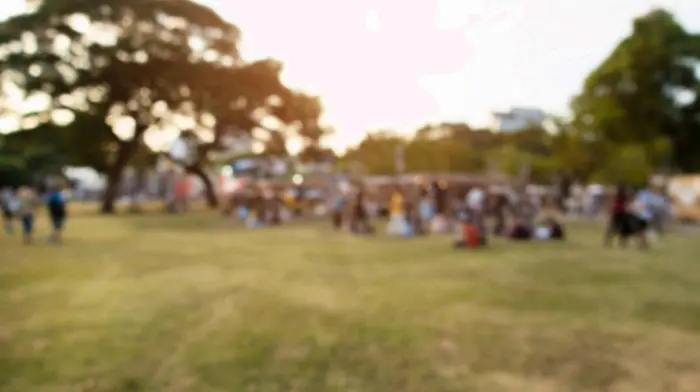While living in rural areas is most appealing and can be truly blissful when things are going one’s way, like everything else in life it can have its downsides and the worst fear most people all over the countryside would have is the prospect of burglary of their property, especially if it is an aggravated one involving violence towards them, as happened in that horrific case in Burnchurch, near Killenaule in Co Tipperary, in which members of the young Corcoran family were terrorised and assaulted by intruders who had travelled down the motorway from Dublin.
WHILE living in rural areas is most appealing and can be truly blissful when things are going one’s way, like everything else in life it can have its downsides and the worst fear most people all over the countryside would have is the prospect of burglary of their property, especially if it is an aggravated one involving violence towards them, as happened in that horrific case in Burnchurch, near Killenaule in Co Tipperary, in which members of the young Corcoran family were terrorised and assaulted by intruders who had travelled down the motorway from Dublin.
The seven-man gang of bully boys who carried out this reprehensible crime in November 2013 will have plenty of time to reflect on their deeds behind bars as they were, rightly, given lengthy prison sentences by Judge Thomas Teehan after they pleaded guilty to the offences they were charged with at Clonmel Circuit Court last week. The level of gratuitous violence perpetrated against the defenceless victims was so vicious that life imprisonment would have been merited, however the fact that the defendants pleaded guilty and the possibility of a successful appeal against such a severe sentence obviously swayed the judge to give the stiffest sentences he felt he could give in the circumstances, which have been widely welcomed and, hopefully, will act as a deterrent to other criminals.
It was refreshing, both for the gardai who constantly strive to combat these vicious gangs – there is said to be up to a dozen of them operating out of Dublin alone – and for members of the public to see lengthy custodial sentences like these handed down, especially in the light of the harrowing victim impact statements of the father who felt guilty that he was unable to protect his family, his wife and two of their children who saw him being brutally assaulted and all of whom no longer feel safe living in their own home, constantly fearful of sudden noises that evoke memories of the traumatic break-in. Sadly, that legacy will last a lot longer for them than the jail sentences being served by their attackers, who were given free legal aid to the tune of €35,000 while the victims are not entitled to any State compensation for their terrible ordeal.
While the Corcorans’ case is amongst the most serious of recent times, there has been an ongoing saga of people being seriously assaulted and robbed in their homes right across rural Ireland over many years. In the latest crime figures for the year up to the end of June 2015, published by the Central Statistics Office last week, an 8.4% increase in the number of burglaries nationally was reported.
The reason for the increase is being anecdotally attributed to the closure of rural Garda stations in recent years, which has effectively given criminal gangs carte blanche to roam the countryside with impunity, seeking out places in rural areas to rob, with little fear of being intercepted by gardai. Their potential victims have no such sense of security, as the paucity of the deterrent of a visible Garda presence in their areas is playing right into the hands of the criminals.
There are some very commendable initiatives being co-ordinated by Garda crime prevention officers, such as liaising with Community Alert groups and the setting up of text alerts of suspicious activities in rural areas. However, greater visibility of Garda patrols is far better for deterring criminality and the knowledge of this would give rural residents a more secure feeling of being watched over by the forces of law and order rather than being preyed on by opportunist criminals.
After the emergence of information that the closure of 139 Garda stations nationally has only resulted in an annual saving of €556,000 rural residents must be wondering how much their security is valued. There is surely a case for revisiting some of the closure decisions given how thinly Garda resources are spread in the more isolated rural areas where sightings of a member of the force have become a rarity.
While re-opening stations won’t solve all the problems caused by rural crime, it would act as a deterrent and help improve response times to emergency calls. One cannot beat the local knowledge of a garda in the community who can keep a discreet eye on potentially vulnerable people, advise them on precautions they should take and put them in touch with people or agencies who can assist them.
Taoiseach Enda Kenny admitted to the Dáil last week that the situation regarding rural crime is ‘not as satisfactory as we would wish,’ which begs two questions: What is the government is going to do about it? And, when?








